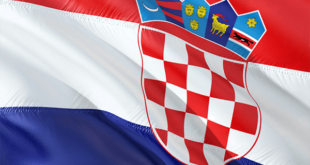The Republic of Croatia has won in the last decades its rightful places among the best study abroad destinations in Europe. This beautiful and quite young country (it’s independent only since 1991) in South Eastern Europe also is one of the ecologically best-preserved parts of the continent. When it comes to education, Croatia also has a longstanding academic history, with HEI that have roots back to more than a century ago. Being part of the European Higher Education Area, Croatian universities therefore participate in the Bologna Process. This not only eases up international mobility and transfer for students, it also sets its guarantee stamps as for the quality of education students are provided with.
Moreover, Croatia has made its entry in the EU and the Schengen Area on January 2023. This makes the student visa system in Croatia resembles very much to what applies in any other European country. Here’s our breakdown of the requirements, process, fees and other regulations regarding the student visa and residence permit in the Republic of Croatia.
Table of Contents
Who Needs a Student Visa to Enter Croatia?
Student visa to enter the Republic of Croatia only applies to international students coming from third-world countries. EU/EEA nationals do not need to apply for any visa is their stay lasts less than 90 days. However, if they need to remain longer than 3 months in the country, they need to register their temporary stay. They can do so by visiting the police station or police administration of their place of residence. There, they’ll receive a certificate attesting their registration as an EU/EEA citizen. Furthermore, EU/EEA nationals can also apply for a biometric residence card through Croatia’s Ministry of Interior. But this step is optional for them.
Non-EU/EEA students who are from a third-world country, on the other hand, need to register for a temporary visa (Type C visa). They can do so at the Croatian diplomatic mission or consulate office of their home country or the nearest office / mission. Then the next step would be to apply for a temporary stay permit for the purpose of studies. Moreover, for third-world country nationals, registering for a biometric residence card is compulsory. And the last mandatory step is the registration of their address within 3 days from setting foot in the country. This is why it’s also mandatory to secure accommodation before your arrival in Croatia.
Croatia Student Visa Requirements: Health Insurance
The very first thing students who want to study in Croatia need to do, before applying for a visa, is to register for a health insurance. This insurance is required in order to obtain approval of temporary stay or a resident permit in the country. The policy they need to subscribe to as well as the type of insurance vary depending on the student’s nationality.
For EU/EEA and Swiss Nationals
EU/EEA and Swiss citizens can use the EHIC (European health insurance card). This card should be valid during the entire duration of their stay. On the other hand, they can also transfer the health care they have from their home country and therefore receive complete health care in Croatia. The only condition is for these students to be enrolled in a full-time degree program in Croatia, suffice it they provide a proof of subscription to this health insurance in their home country.
For Nationals From Countries That Have Bilateral Health Agreements With Croatia
This applies to students from Bosnia and Herzegovina, Montenegro, North Macedonia Serbia and Turkey. In their case, students need, before arriving in Croatia, to contact their insurance provider. The latter will then issue a document enabling them to have health care in Croatia. And upon their arrival in Croatia, they present this document at the Croatian Health Insurance Fund (CHIF). The CHIF in turn will issue a valid health insurance document for them.
For Other Third-Country Nationals
Students who are citizens of other countries than those mentioned before need to subscribe to a private health insurance. The policy must therefore cover them for the entire duration of their stay in Croatia. You can check details surrounding health insurance in Croatia on the website of CHIF.
Documents Required for a Student Visa in Croatia
As mentioned earlier, a student from a third-country needs a temporary stay permit (Type C visa) to enter Croatia. Here are the documents they need to provide in order to register for this visa:
- Visa request form
- Valid health insurance
- Proof of means of support during their stay in the Republic of Croatia. This can be a bank statement, a proof of scholarship or a letter of guarantee
- Original and a copy of a valid personal identification document (preferably passport)
- Recent identity photo 35 × 45 mm
- Proof of accommodation arrangement
- Document proving a clean criminal record
- Other supporting document stating the purpose of their visit in Croatia
- Evidence of payment of the visa fee (if applicable)
- Any other information or documents the diplomatic mission or consulate might require
Documents to Provide for the Student Residence Permit Application
Following the type C visa procedure, international students must fill in the residence permit application. This step can be done either at the Croatian embassy or consulate of their home country or to the police station/department of their place of residence once in Croatia.
Documentation to submit include:
- Copy of a valid passport
- Recent photograph of 35×45 mm
- Evidence of accommodation, that must have been registered at the local police administration 48 hours upon arrival in Croatia. In case of a private accommodation, especially. If the students registered for a university accommodation or a youth hostel, the address should be automatically registered.
- Proof of health insurance
- Bank statement proving the student has enough bank balance to support or scholarship proof
- Letter of acceptance or confirmation letter in the Croatian language, attesting the student’s registration at a higher education institution in the country
Lastly, for the biometric residence card application, students need to submit a valid passport as well as a colored recent photograph.
Read here how to apply to universities in Croatia.
Croatia Study Visa Application Procedure
The very first step in the student visa and resident permit procedure in Croatia is to check out if you are eligible for a visa to enter the country. If yes, then they follow up to filling out the temporary stay application. Next is to submit the filled form along with the supporting documents above. Applicants also pay the application fees and have their fingerprints taken when submitting their application.
After they receive their entry visa, international students need to register their address at the local police administration of their residence in Croatia. They also must apply for a residence permit within the 90 days following their arrival, and for a biometric residence card.
Once they’re granted a residence permit, students also need to proceed to another crucial step: obtain a personal identification number (OIB) for the Tax Administration. They can do so either at the local offices of the Croatian Tax Administration or online. This number is important in order to open a bank account or for any paperwork related to their temporary stay in Croatia.
Student Visa Croatia Cost
When it comes to fees, international students who are third-country nationals must pay a €46.45 fee for the visa C. As for the biometric residence card, the procedure will cost them €31.85 and €59.73 under the accelerated procedure. Moreover, an additional administration fee of €9.29 may apply. Lastly, EU/EEA students who want a biometric residence card will have to pay a €13.27 fee.
Croatia Student Visa Processing Time
A temporary stay visa takes around 15 days to process, while residence permits will require between 60 and 90 days of processing time. As for the biometric residence card, the issuance will take approximately 3 weeks from the submission. However, if the student chooses to go through the accelerated procedure, it will take 5 working days to process.
What is the Success Rate of Student Visa in Croatia?
Croatia boasts a remarkable success rate of 88% for the visa according to recent statistics. This displays the country’s efficiency in processing visa packages – yet, approval still depends on essential factors such as the type of visa or the applicant’s country of origin or purpose of stay. To ensure you get your student visa approval, make sure all the required documents are in order and to fill the application form with honest and accurate information. Also, for the best chance of success, you can even practice the interview in order to provide the right answers to all the questions that may come up your way.
Validity and Renewal of the Resident Permit in Croatia
The student residence permit in Croatia is valid for one year and needs to be renewed every year. Moreover, after they graduate from a HEI in Croatia, international students can request a prolongation of their stay for up to one year for the purpose of seeking employment. Students need to apply for this extension in no later than 60 days before the expiration of their residence permit.




 Aljawaz Your guide to study abroad
Aljawaz Your guide to study abroad






